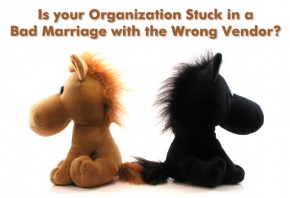Having worked with Dynamics NAV for quite a few years, I have had the opportunity to work with customers who have been unhappy with their previous Dynamics partners. While the reasons for unhappy relationships vary, the common outcome has been that these customers have a very limited view of the product.
Changing the perception of these customers about Dynamics NAV has been quite a task and it often makes me wonder about the ERP product selection and the common methodologies that are adopted in the process.
Recently, I went for a discovery session for a customer who had implemented NAV only about 18 months ago. During that time, their implementation consultant never asked the question “Why do you do the things the way you do?”. As a result, the implementation was merely a replication of their old systems and processes and didn’t take into account their business vision, goals and many of the best practice features that NAV has to offer. The outcome of the discovery meeting was that we had to re implement Dynamics NAV for them and even though they are a much happier customer now, their Total Cost of Ownership (TCO) was doubled because they weren’t served well by their original NAV partner.
So is the product really important? Gartner research suggests that even though functionality is an important criterion for selection, assessment should also include vendor’s capabilities especially the number of experienced consultants available, and their subject matter expertise.
So next time you are looking for an ERP product, talk to the consultants that will be doing your implementation. Evaluate if they will serve you right. Allocate time for “subject matter expertise/consultants” when you discuss your process requirements with the prospective partner and ensure that sales people are not the only ones that are present for sales meetings.
Image: courtesy of Expo Logic







